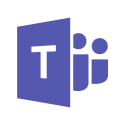
Agile Simplified For Non-Software Teams

When people think of Agile, they often associate it with software development. But Agile principles aren’t just for tech teams. Non-software teams—like marketing, HR, or operations—can also benefit from the flexibility, collaboration, and iterative progress that Agile methodologies offer.
In this guide, you’ll discover how non-software teams can implement Agile principles to boost productivity, enhance collaboration, and adapt more effectively to changes.
What Is Agile Really?
Agile is more than a set of rules or a strict process; it’s a mindset focused on adaptability, collaboration, and delivering value iteratively. For non-software teams, Agile offers a way to structure work that emphasizes continuous learning, feedback, and responsiveness to change rather than sticking rigidly to a long-term plan. It’s not about following a rigid process but adapting to deliver higher value and better outcomes.
Agile has proven effective in various industries outside of software because it focuses on flexibility and responsiveness—traits every team can benefit from.
How Agile Benefits Non-Software Teams
Non-software teams, like marketing or HR, can gain several benefits from adopting Agile practices:
Faster Feedback and Iterative Progress: Agile allows teams to work in short cycles, gather feedback, and adjust as they go. This is particularly useful for marketing teams that must adapt campaigns based on real-time data or for HR teams to refine recruitment strategies as new information becomes available.
Enhanced Collaboration and Cross-Functionality: Agile emphasizes open communication and collaboration. This encourages cross-functional teams—such as product, sales, and marketing—to work together more effectively. It breaks down silos and fosters transparency, leading to better alignment on goals and strategies.
Improved Flexibility and Adaptability: In fast-changing industries, Agile’s flexibility helps non-software teams respond quickly to shifts in strategy, customer demands, or market conditions. This adaptability is essential for teams tasked with marketing launches or company-wide change initiatives.
3 Key Agile Ceremonies Adapted for Non-Software Teams
Adopting Agile doesn’t mean following every practice exactly as software teams do. Here’s how non-software teams can adapt key Agile ceremonies to fit their needs:
Daily Stand-Ups: A 15-minute meeting where the team discusses what was done yesterday, what they plan to do today, and any obstacles. For marketing teams, this could mean examining the status of ongoing campaigns, while HR teams might review recruitment progress.
Sprint Planning and Execution: Sprints are short, focused work periods, usually 1-4 weeks, during which the team works toward a clear goal. This can help non-software teams break large projects—like launching a new product—into manageable tasks, fostering a sense of progress and accountability.
Retrospectives: After each sprint, teams hold a retrospective to reflect on what went well and what can be improved. This fosters a culture of continuous learning and improvement, helping teams adjust processes or tactics to meet goals better.
3 Practical Steps to Implement Agile in Your Non-Technical Team
Getting started with Agile doesn’t have to be overwhelming. Here are a few simple steps to help non-software teams begin:
Start Small with One Agile Practice: To introduce the team to Agile without overwhelming them, begin with one Agile principle or practice, like daily stand-ups or a simple Kanban board.
Use a Simple Tool for Collaboration: Non-software teams can benefit from tools like Trello, Asana, or Google Sheets to visualize and manage tasks. These tools help organize work, track progress, and encourage collaboration.
Focus on Outcomes, Not Outputs: Agile encourages teams to focus on delivering value rather than just completing tasks. It also encourages teams to measure success by the impact of their work rather than by the number of deliverables completed.
What Are the Common Challenges Non-Software Teams Face When Adopting Agile?
Adopting Agile comes with its own set of challenges, especially for teams that aren’t used to working this way. Here are some common obstacles non-software teams face:
Cultural Resistance: Teams that have operated in a hierarchical, top-down manner may resist Agile’s collaborative approach. Agile emphasizes self-organization, which can feel uncomfortable for teams used to rigid processes.
Misalignment with Management Expectations: Management may expect detailed long-term plans, while Agile focuses on short-term iterations and adaptability. If management is not aligned with Agile's iterative nature, this can create frustration.
Lack of Psychological Safety: Agile teams thrive in environments where team members feel safe sharing ideas, admitting mistakes, and giving feedback. If a team lacks psychological safety, adopting Agile principles can be challenging.
How to Overcome Agile Adoption Challenges
To overcome these challenges, you can apply the following practices:
Provide Agile Training and Education: Comprehensive training on Agile principles can demystify the approach for non-software teams. Encourage ongoing learning and ensure teams understand that Agile is about adapting to change, not following rigid rules.
Foster Open Communication: Clear and open communication is critical when implementing Agile. Regular check-ins and transparent project tracking can help bridge understanding gaps between Agile and non-Agile teams.
Emphasize Iterative Learning: Highlight the importance of learning through iteration. Non-software teams may need to shift their mindset from seeking perfection to accepting incremental improvements through feedback and experimentation.
Real-Life Example: Agile Transformation in the Food Industry
Agile transformations aren’t just for tech companies. AK Gida, Turkey’s largest dairy producer, faced challenges with slow delivery processes and poor organizational transparency. To address these issues, they initiated an Agile transformation, starting with a pilot team of 40 members.
AK Gida tailored Agile to fit their unique needs by adopting a blend of iteration and flow-based practices. Here’s what they achieved:
Improved Transparency: Agile practices helped the team clarify project activities and dependencies, leading to better alignment and visibility across the organization.
Faster Delivery: By working in short cycles, AK Gida significantly sped up its delivery processes, reducing bottlenecks and improving overall efficiency.
This transformation enhanced operational performance and fostered a culture of continuous improvement and collaboration within the organization. AK Gida’s success proves that Agile is applicable even in traditional industries like food production, where flexibility and responsiveness are crucial to success.
Takeaway
Agile is not exclusive to technical teams. Its principles can also bring tremendous value to non-software teams. By fostering collaboration, enhancing adaptability, and encouraging continuous improvement, Agile helps various teams work more effectively and efficiently.
The key is to start small, adapt Agile principles to fit the team’s specific needs and embrace a mindset of learning and iteration. With Agile, non-software teams can deliver more value faster and more flexibly.
Discover how Agile solutions by Team O’Clock will help you boost your team’s performance with our free 15-day trial.

More articles to check

Assist your team's growth with our partnership program:








